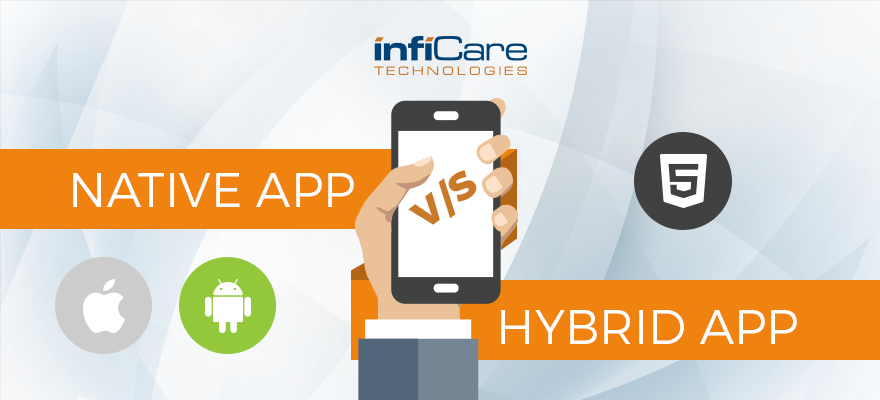There comes a variety of factors along with mobile app development that needs to be considered and if you have decided to get a mobile app developed for your business, what’s the best way to minimize cost and maximize the benefit? Being reviewed as the best mobile app development company in India, we want to talk about two different ways you can think about creating your mobile apps: native and hybrid.
Here are some of the important considerations that can help you decide which platform to choose for getting your very own application developed:
1. Development Speed
In hybrid the development speed is good and you can get a finished mobile app quickly. The same HTML code is reused for different operating systems and only a portion of the integrated native code needs to be rewritten; the app will be outfitted to work on multiple devices in the quickest time possible. If time is not of the essence then native development may be right for your business. But when it comes to turnaround time, you simply can’t beat hybrid development.
2. Cross-Platform Compatibility
With a large number of audience out there, it is essential for the businesses to be able to reach the target markets on all devices. Hybrid app development ensures the compatibility in one swoop. With native development this simply isn’t the case – an app designed for an iPhone will only work on iPhone and won’t work on Android, and vice versa.
3. User-Experience
When it comes to user-experience, both native and hybrid have proved to be successful. For most businesses, native and hybrid app delivered users a great experience because of its smooth functioning. The decision to build a native or a hybrid mobile app should be based on your business objectives and your target audience/market. So it’s a tie and if your focus is on user experience then you can go for either of them.
Below we have discussed some of the strengths of both Native and Hybrid. Let’s take a quick look at:
NATIVE
- The code is reusable.
- The app performs smoothly on all native platforms and devices
HYBRID
- Fully cross-platform which means once the code is written it can be can build for iOS, Android, and/or Windows Phone
- Developing a hybrid app is quick as it reduces development time and cost
Well, the differences between Native and Hybrid apps don’t end here. If you are interested to know all aspects of both approaches, our expert will help you to know more. Write to us at managers@infiCaretech.com or approach to us through Skype (







